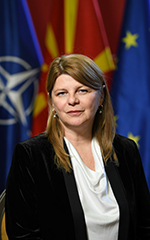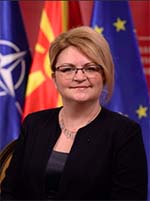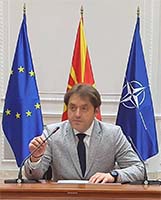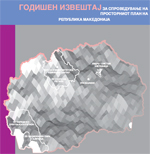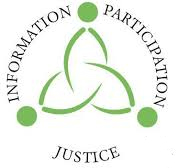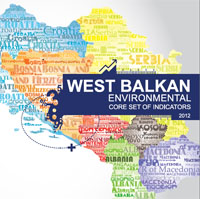- I consider the establishment of the circular economy, starting from the change in the mental perception of economic progress and the establishment of a whole new approach to production, repo materials, innovative technological processes and the management of the waste we were creating, to be one of the biggest priorities in the environment emphasized the Minister of Environment and Physical Planning, Kaja Shukova in her speech at the CIVIL’s Regional Conference “Visions for a green future: Partnership for circularity”.
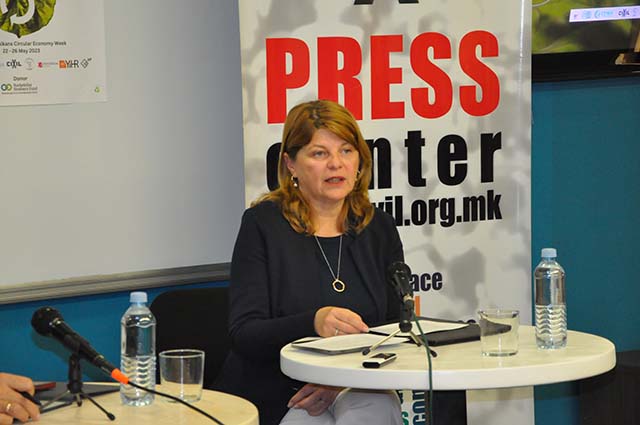 She spoke at the first session entitled “Transformation of the Economy at the Local and National Level: Strategies, Challenges, and Perspectives of the Circular Economy” together with the Deputy Prime Minister in Charge of Economic Affairs, Fatmir Bitiqi, who gave greater emphasis to the green transition as a whole.
She spoke at the first session entitled “Transformation of the Economy at the Local and National Level: Strategies, Challenges, and Perspectives of the Circular Economy” together with the Deputy Prime Minister in Charge of Economic Affairs, Fatmir Bitiqi, who gave greater emphasis to the green transition as a whole.
Minister Shukova emphasized that the efficient reduction of the waste we create is possible only by building strong partnerships with all stakeholders, starting with the national and local authorities, the collective waste handlers, the business community, the civil sector and, of course, the citizens themselves.
- We as the Government recognize the unnecessary creation of waste, as well as the financial, environmental and social costs of the creation of unnecessary waste and the need for appropriate management of our limited resources. From here, we focus on preventing the creation of waste. But one of the most important moments is the establishment of the system of selection, reuse, and recycling of waste, while what will end up in dumpsites will be only a small part that will have no use value. This is the only way we can strengthen the national economy while protecting the environment in local, national, regional, and global frameworks – said Shukova.
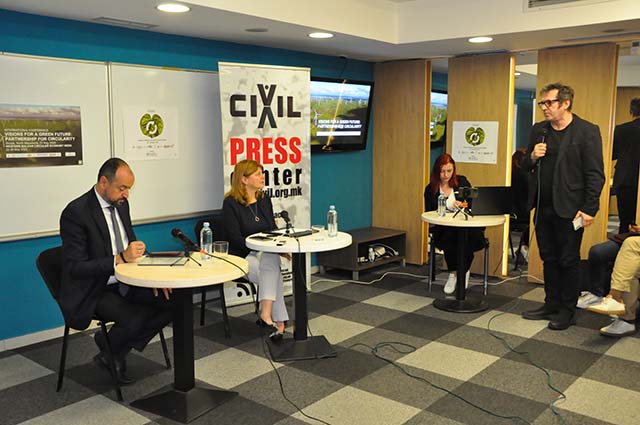 According to her, the biggest challenge, at the national and local level, which will mark the period ahead of us, is the implementation of the loan that the state received from the European Bank for Reconstruction and Development for the establishment of the regional system for integrated waste management in all planning regions in the country.
According to her, the biggest challenge, at the national and local level, which will mark the period ahead of us, is the implementation of the loan that the state received from the European Bank for Reconstruction and Development for the establishment of the regional system for integrated waste management in all planning regions in the country.
- The loan is intended for the construction of the basic infrastructure, i.e. regional dumpsites, transfer stations, and procurement of containers and vehicles, which will lead to the concrete construction of the necessary modern infrastructure and the final establishment of the system for regional integrated waste management as the only viable option at the national and local level – Shukova added.
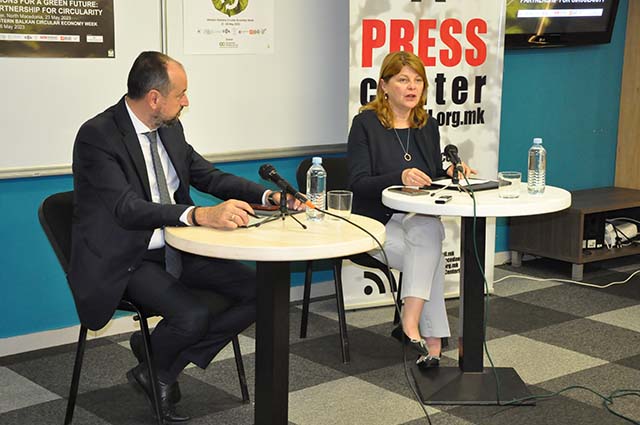 The conference was hybrid, with physical presence and online involvement, and was divided into four half-hour sessions, in which representatives from the business sector, media, and civil society and from our country and the Western Balkans participated.
The conference was hybrid, with physical presence and online involvement, and was divided into four half-hour sessions, in which representatives from the business sector, media, and civil society and from our country and the Western Balkans participated.
The event is part of the large regional initiative to mark the Western Balkans Circular Economy Week 2023 (22-26 May) under the motto “Partnership for Circularity”.



